Winners of the Outer Space 2020 Competition develop design narratives for life beyond Earth
By Bustler Editors|
Thursday, Jan 21, 2021
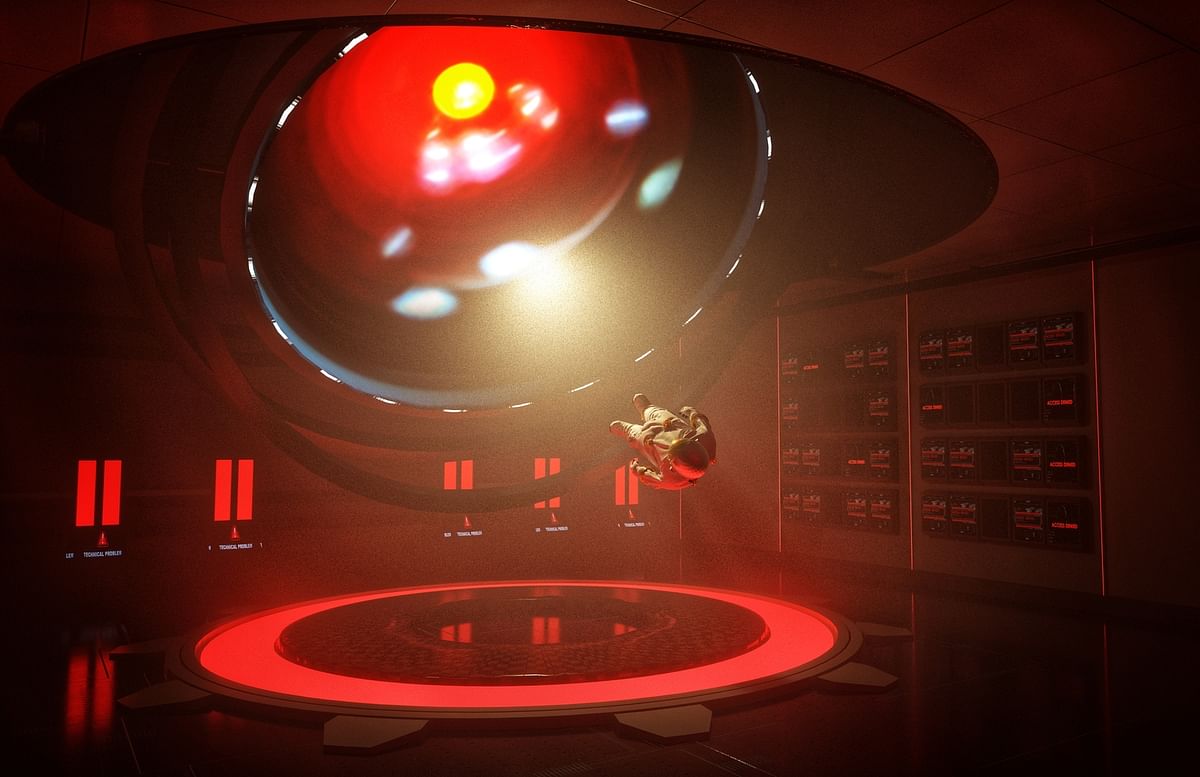
Related
The second annual Outer Space competition highlights the narrative and visual works of participants as they create possibilities for life in space. The competition brief, "encouraged architects and designers to leverage real scientific advances in robotics, AI, rocketry and autonomous spacecraft to craft fantastic visions for the near future in outer space."
Winning projects were broken into two categories winning entries and honorable mentions. Their work will be featured in the forthcoming "Outer Space" publication by Blank Space. *Proceeds of the publication will be donated to the Children's Scholarship Fund Philadelphia, whose mission is to broaden educational opportunities for K-8th grade students from low-income families in Philadelphia by providing them with tuition assistance.
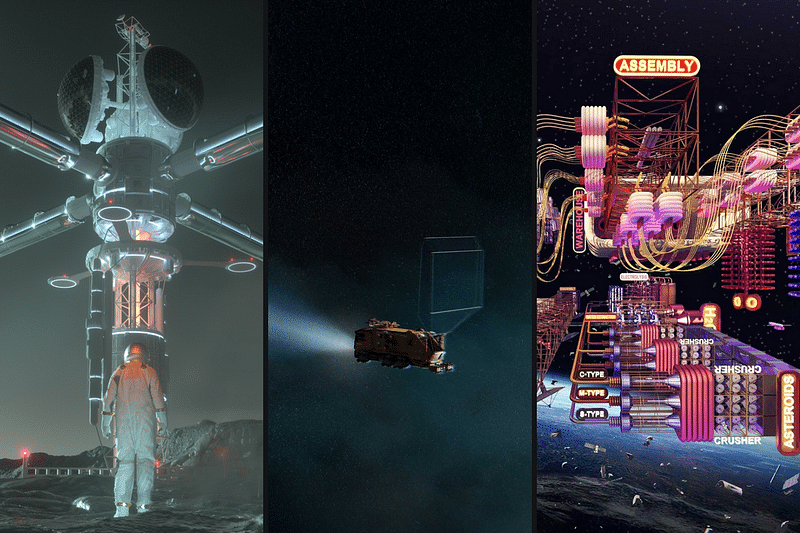
Jury member Fred Scharmen shared, "The best submissions to the Outer Space 2020 competition were able to suggest a bigger universe beyond the sometimes cramped artificial worlds they made. Oracle and others also dealt with questions that were beyond the merely technical: what motivates people to make and visit new spaces in the first place? They remind us that sometimes the ‘how’ is much easier than the ‘why.’"
Below are the winning projects
1st Prize - Oracle by Wei Wu and Zhenyu Yang
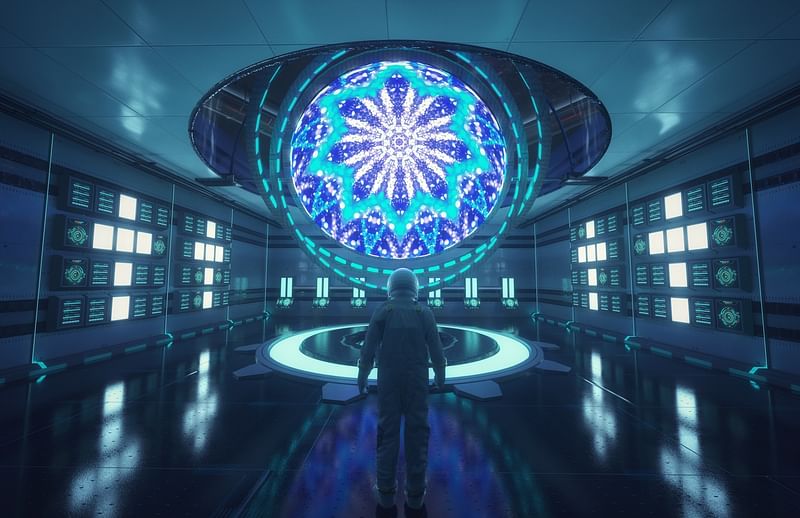
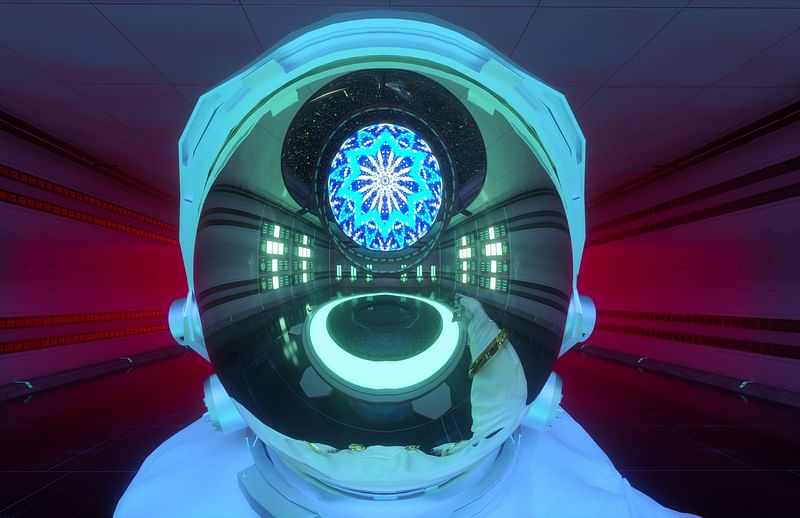
Project excerpt: "If everything should have a purpose, then who is about to decide this purpose? God? Coincidence? Or is it us? What would you do when you are truly free from everything? It is the year 2442, an era when the ultimate dream of humankind has come true. The world government announced that humanity was completely liberated from productive forces, that all supplies could be automatically produced and processed. People drew from geothermal energy through a giant grid infrastructure connected by pipes, allowing efficient transportation and conversion between heat and supplies. These infrastructures were widely used in several Earth-like planets. From then, humans began to live a nomadic life, traveling from place to place and even from planet to planet in spacecraft. Other than landing to draw energy and supplies, we are indeed “free.”
2nd Prize - Node 1 by Thanat Prathnadi & Joana Vilaça
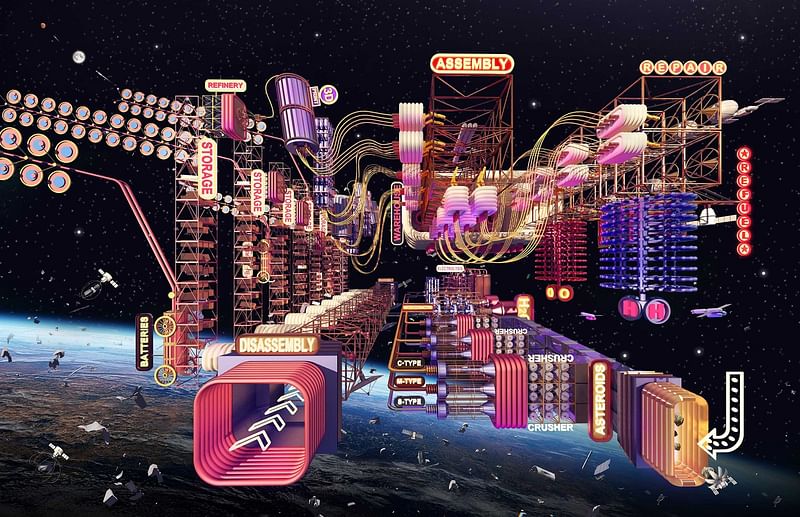

Project excerpt: "Earth observation missions collect crucial data that is used to monitor climate change. Given the large volume of data collected, and the carbon footprint associated with it, data storage is a topic of debate. Experts have hypothesised about moving data centres to space, as a more secure and sustainable way to store data. More recently there has been a growth in the commercial use of space linked to companies like SpaceX and Blue Origin. Private projects such as Starlink, a global internet system, are under development. These three scenarios have in common the number of satellites planned to be launched, which will greatly increase. Starlink alone aims to send 42,000 satellites for its constellation. As a result, Low Earth Orbit (LEO) will be crowded with ever growing numbers of spacecraft."
3rd Prize - Garbage Man by Therese Leick and Wilhelm Scheruebl of TAB collective
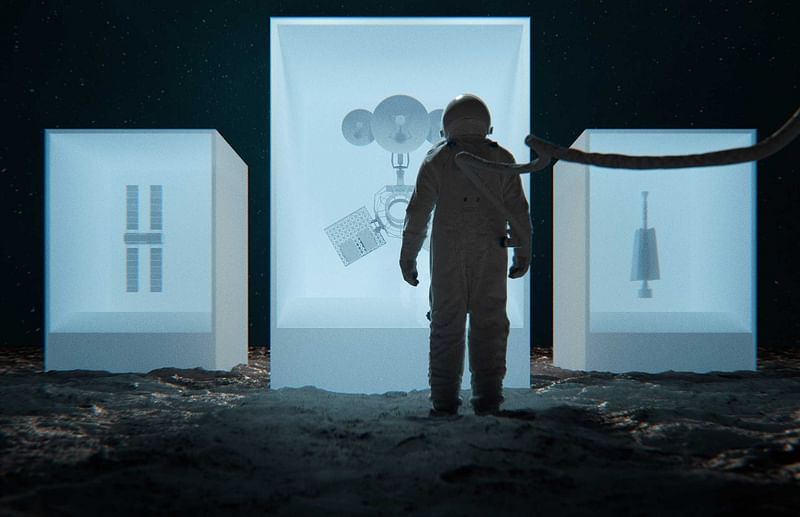
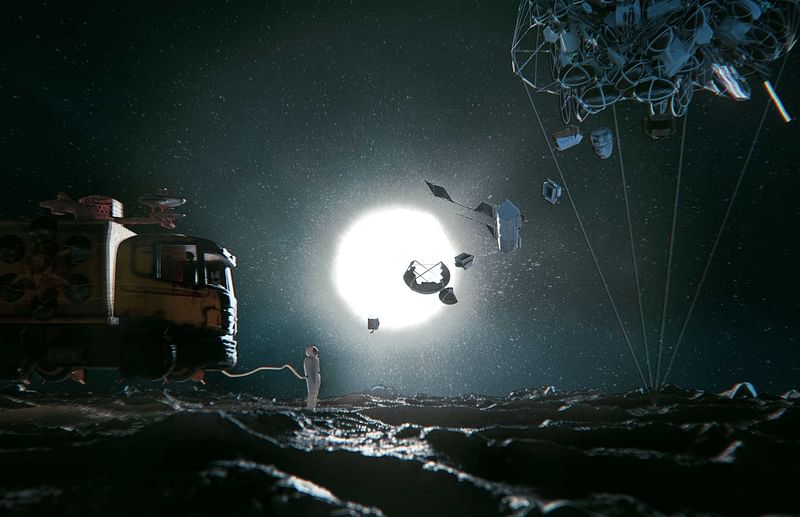
Project Excerpt: "We were not only the first to travel into space, but also an important part of space activities. Who would have ever thought that we, as garbage collectors, would have such a great influence on the future of mankind? I mean, after my work in space had begun, I realized that my job as a garbageman, already on Earth, played an essential role in maintaining the Earth’s ecosystem."
With many wonderful and through-provoking submissions, the jury selected ten honorable mentions to highlight.
Honorable Mentions
- Pavel Babienko for “The Nomads”
- Miao Wang for “Gravities”
- Michael O’Reilly, Jingsi Sun, Yingying Zhou & Yaseen Bhatti for “The Forge”
- Onur Koyun for “Unembodied Diaries”
- Sofia Zavala & Maxwell Baum for “Mercurial Katabasis”
- Christian Boling, Daniel Quintanilla Rico & Matthew Stutzke for “The 2149ers”
- Ardalan SadeghiKivi, Shervin Azadi & Armin Rangani for “The Relaters”
- Rebecca (Ye Rin) Choi, Enica Deng, Harry Zhang for “00:92:42”
- Ignacio Rojas Infante for “Europa’s Labyrinth”
- Jonas Swienty Andresen & Yip Siu for “Terra Ignota”
To learn more about the competition and its winner click here.


Share
1 Comment
Nam Henderson · Jan 24, 21 5:28 PM
I assume "Fred Schamen" should read "Fred Scharmen" as in?
Comment as :